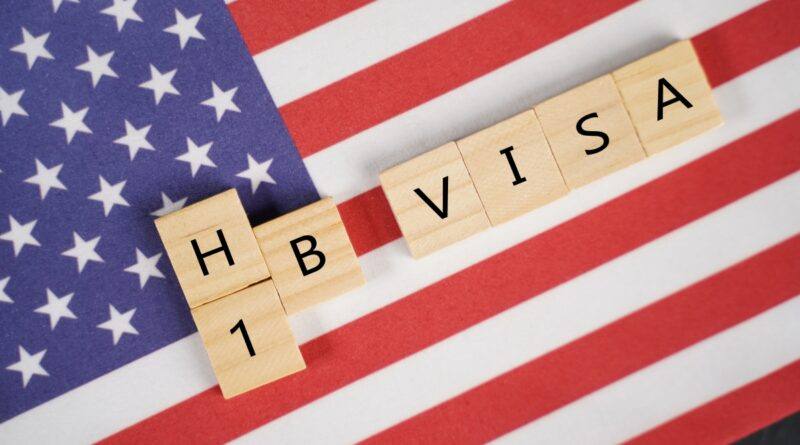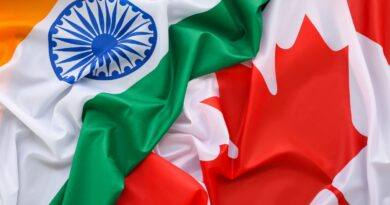The Evolving H-1B Visa Landscape: Implications for Indian Professionals and Businesses in the U.S.
The H-1B visa program, a cornerstone of U.S.-India economic relations, has come under significant scrutiny and undergone notable changes in recent months. With Indian nationals comprising the majority of H-1B visa recipients, policy shifts in this program resonate profoundly across the Indian diaspora and the socio-economic landscape of both nations. As debates and reforms continue to emerge, it is vital to examine their implications for Indian students, professionals, and businesses in the United States.
Impact on Indian Students in the U.S.
For Indian students pursuing higher education in the U.S., particularly in STEM fields, the H-1B visa has long symbolized a pathway from academic achievement to professional success in a globally competitive market. However, recent uncertainties surrounding the program have added complexity to their decision-making process.
1. Increased Competition and Uncertainty:
The annual cap of 85,000 H-1B visas is consistently oversubscribed, subjecting many students to a nerve-wracking lottery system. As a result, some are opting for alternative destinations like Canada, Germany, and Australia, which offer more predictable routes to employment and residency.
2. Economic Implications:
A decline in Indian student enrollment could adversely impact U.S. universities, which rely heavily on international tuition fees. Furthermore, reduced student numbers may slow the influx of skilled professionals into critical sectors such as technology and healthcare, potentially affecting the U.S. economy.
Implications for Indian Professionals and Businesses
Indian professionals, who form the backbone of Silicon Valley and other technology hubs, are both beneficiaries and victims of the H-1B program’s limitations. While the visa has enabled significant contributions to U.S. innovation, its constraints present barriers to stability and long-term growth.
1. Green Card Backlogs:
Many Indian H-1B holders face decades-long waits for permanent residency, leading to professional stagnation and personal stress. This has spurred calls for reforms to address the backlog and introduce merit-based pathways.
2. Entrepreneurial Challenges:
Indian entrepreneurs in the U.S. often encounter visa restrictions that hinder their ability to start and scale businesses. The absence of a visa tailored to startup founders compounds these challenges, diverting talent and innovation back to India or other nations.
3. Economic Contributions:
Despite these hurdles, Indian professionals continue to play a critical role in the U.S. economy. They fill essential skill gaps, drive technological innovation, and bolster a bilateral trade relationship valued at over $191 billion in 2023.
Broader Impacts on India and the U.S.
1. India-U.S. Strategic Ties:
The H-1B program has historically served as a linchpin of India-U.S. relations. As its dynamics evolve, it is essential for policymakers to align its framework with broader strategic objectives, including defense, trade, and technology collaboration.
2. Reverse Brain Drain:
Restrictive visa policies could accelerate a reverse brain drain, with Indian talent returning to bolster India’s burgeoning tech ecosystem. While this trend could enhance India’s global standing, it may create challenges for U.S. businesses that rely on foreign expertise.
3. Advocacy and Reforms:
The Indian government and diaspora organizations are actively advocating for a more equitable and transparent H-1B system. These efforts aim to ensure that the program remains mutually beneficial, fostering innovation and economic growth for both countries.
The Path Forward
As the H-1B program faces renewed scrutiny, its future must balance the interests of all stakeholders. For Indian students and professionals, addressing green card backlogs, visa caps, and entrepreneurial barriers is crucial. For the U.S., maintaining a steady inflow of skilled talent is essential to sustaining its competitive edge in a rapidly evolving global economy.
For India, the stakes extend beyond the diaspora. A robust and equitable H-1B system not only strengthens bilateral ties but also highlights the indispensable role of Indian talent in shaping a shared global future. As the world’s largest democracy and an emerging economic powerhouse, India must continue its diplomatic efforts to safeguard the interests of its citizens abroad.
In the evolving narrative of H-1B visas, the Indian perspective remains integral. By addressing challenges with foresight and collaboration, both nations can ensure that this critical program continues to serve as a bridge to shared prosperity and innovation.




